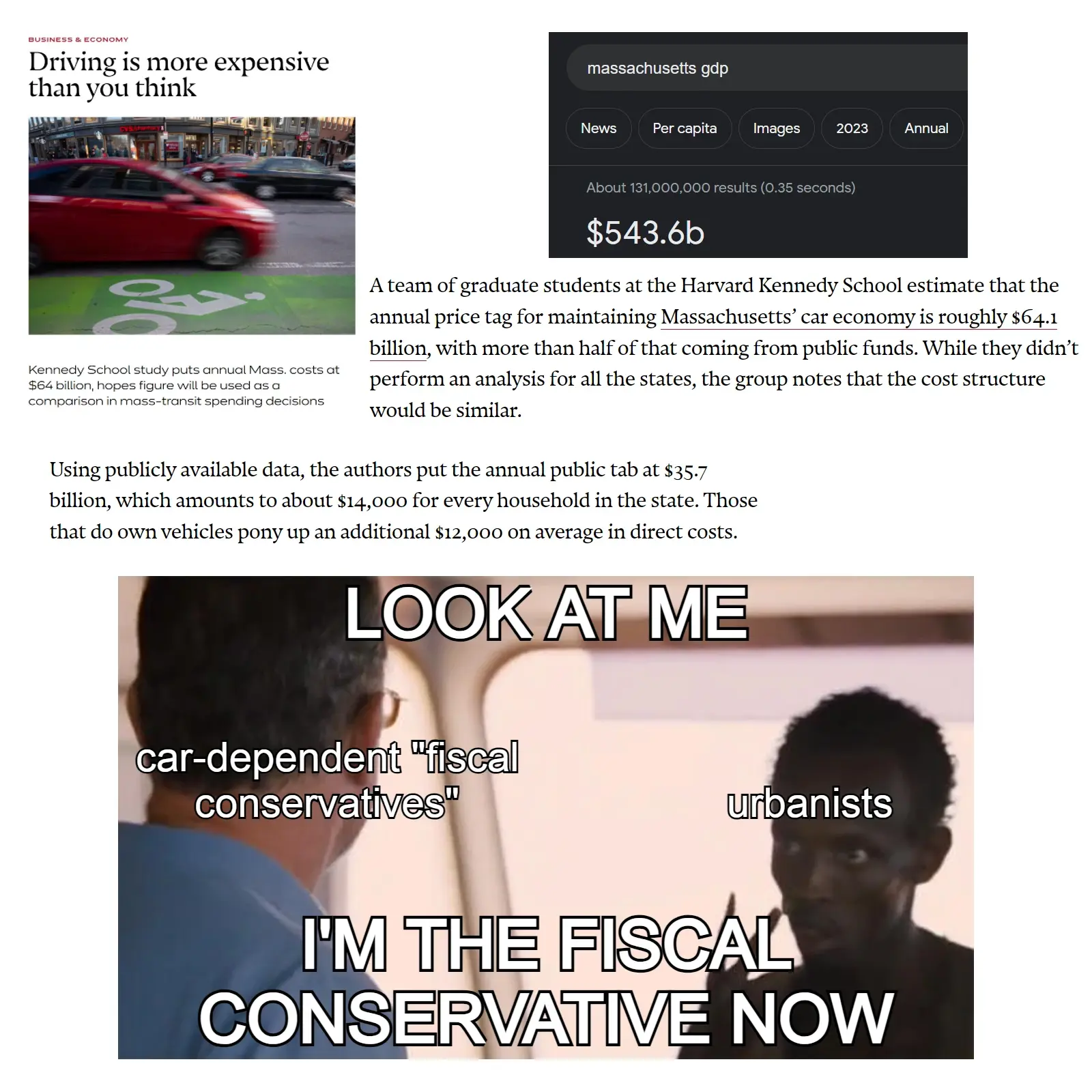view the rest of the comments
Fuck Cars
A place to discuss problems of car centric infrastructure or how it hurts us all. Let's explore the bad world of Cars!
Rules
1. Be Civil
You may not agree on ideas, but please do not be needlessly rude or insulting to other people in this community.
2. No hate speech
Don't discriminate or disparage people on the basis of sex, gender, race, ethnicity, nationality, religion, or sexuality.
3. Don't harass people
Don't follow people you disagree with into multiple threads or into PMs to insult, disparage, or otherwise attack them. And certainly don't doxx any non-public figures.
4. Stay on topic
This community is about cars, their externalities in society, car-dependency, and solutions to these.
5. No reposts
Do not repost content that has already been posted in this community.
Moderator discretion will be used to judge reports with regard to the above rules.
Posting Guidelines
In the absence of a flair system on lemmy yet, let’s try to make it easier to scan through posts by type in here by using tags:
- [meta] for discussions/suggestions about this community itself
- [article] for news articles
- [blog] for any blog-style content
- [video] for video resources
- [academic] for academic studies and sources
- [discussion] for text post questions, rants, and/or discussions
- [meme] for memes
- [image] for any non-meme images
- [misc] for anything that doesn’t fall cleanly into any of the other categories

We’ll still need the roads & streets, repairs/repaves, traffic lights, and snow plows even if 95% of us switch to bikes, e-mopeds, and trains…
In a hypothetical 2050 America that has embraced walkable neighborhoods and biking M-F and only using cars to visit friends in a different city, the roads & streets will still be being worn out at nearly the same rate by the elements and heavy delivery, construction, and emergency vehicles.
Because the road-quality bar for driveability is a often noticeably lower than the bar for bikeability, many/most municipalities with actual bike users on the board may vote for higher quality road construction, which likely would raise labor and/or material costs and likely balancing out to the same 20 year costs despite maybe going an extra year or two between repaves due to significantly less civilian 3,000-8,000lbs commuter vehicle use.
We'd need streets, yes, but if we eliminated car-dependent sprawl (e.g., single-family detached zoning and parking minimums), we wouldn't need nearly as many streets. Further, if we shifted as much freight as possible to other modes like local rail, cargo trams, and NEVs, then we would vastly reduce wear on roads from the 4th power law.
The 4th power law BLOWS MY MIND. Long-haul trucking in America is literally the most destructive force to the roads they drive on.